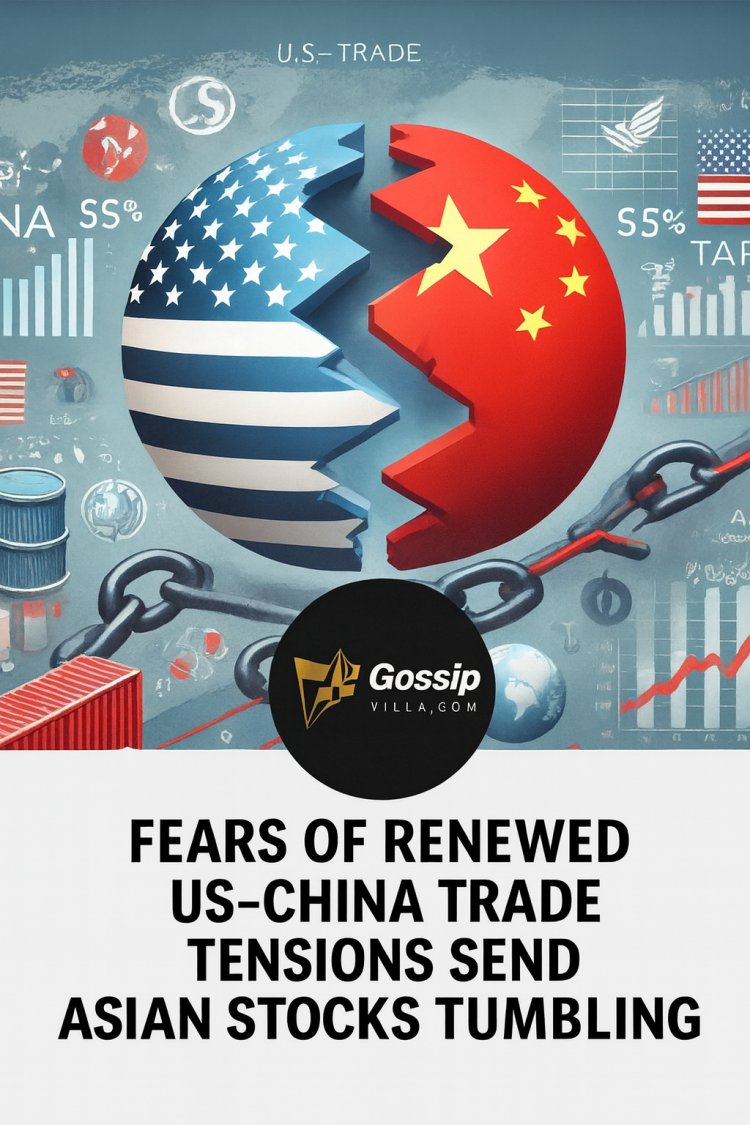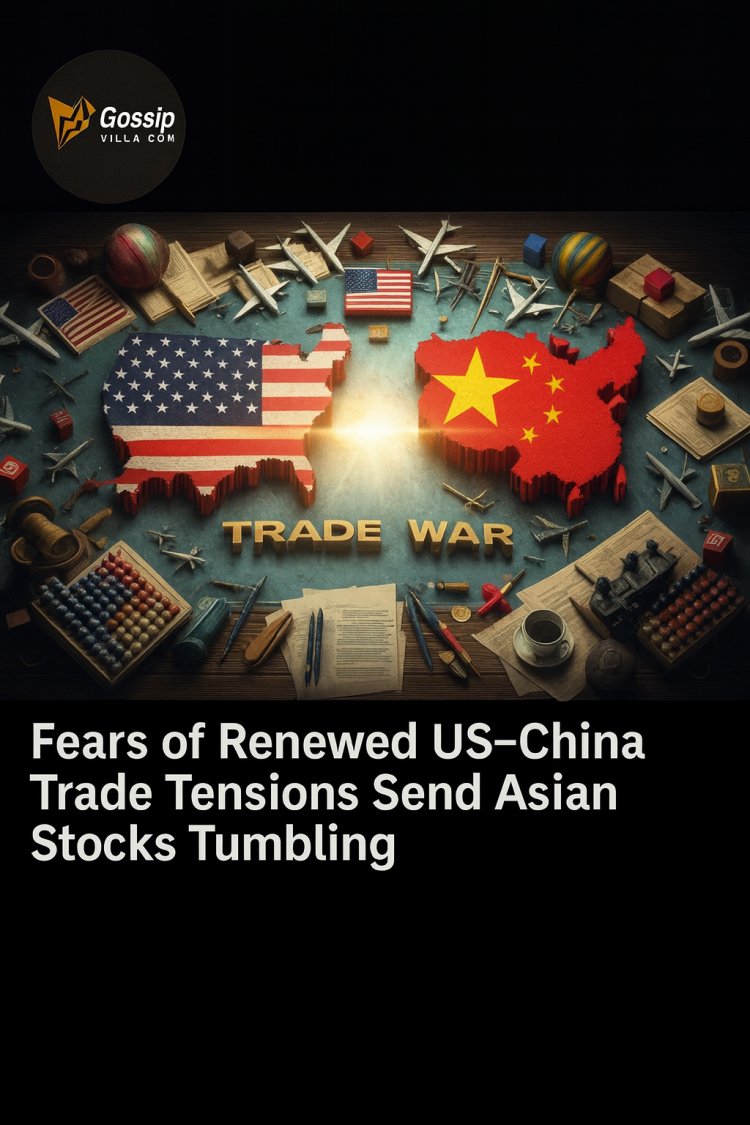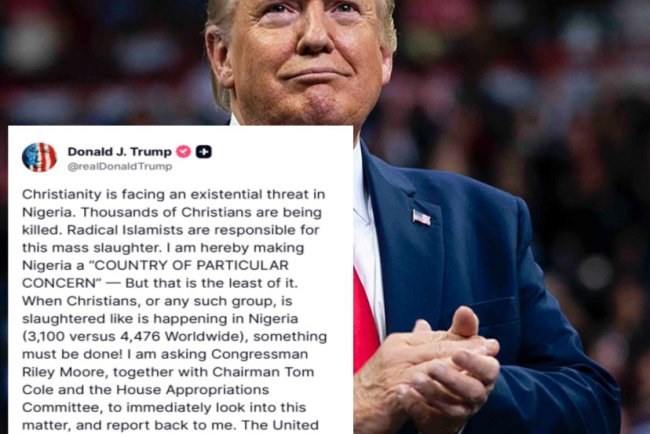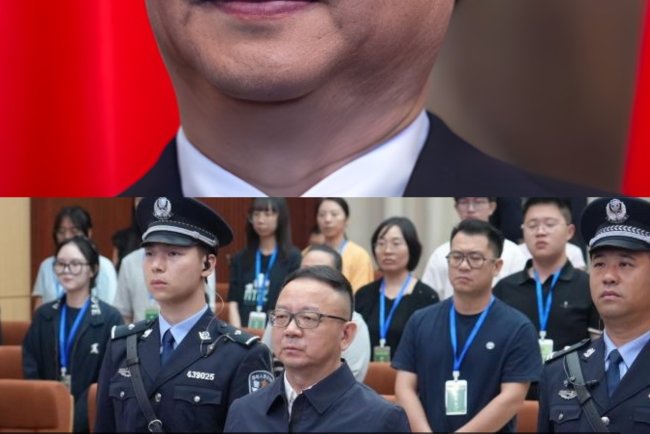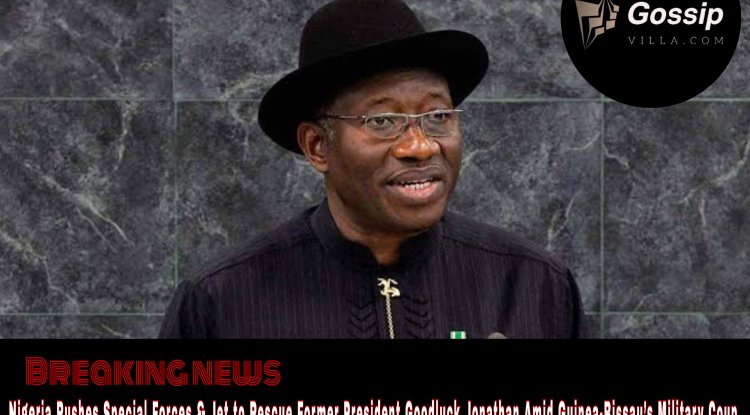US-China Tariff Tempest Sparks Market Meltdown: Asian Stocks Sink Over 3% as Global Trade War Fears Explode
US-China Tariff Tempest Sparks Market Meltdown: Asian Stocks Sink Over 3% as Global Trade War Fears Explode
US-China Tariff Tempest Ignites Global Sell-Off: Asian Stocks Plunge Over 3% as Trade War Fears Resurface
In a stark reminder of the fragility underpinning global economic ties, Asian stock markets convulsed on Monday, October 13, 2025, as investors recoiled from the specter of a full-blown US-China trade war reignition. The carnage was triggered by President Donald Trump's blistering weekend announcement on Truth Social, vowing to slap an additional 100% tariff on all Chinese imports starting November 1—piling atop the existing 30% duties to create a staggering 130% effective rate, the highest since the spring's 145% peak. This draconian measure, framed as retaliation against Beijing's "extraordinarily aggressive" expansion of export controls on rare earth minerals—vital for semiconductors, electric vehicles (EVs), and AI hardware—has sent shockwaves rippling from Shanghai to Seoul, erasing billions in market value and prompting a frantic flight to safe-haven assets like US Treasuries and gold. With the world's two economic behemoths locked in an escalating tit-for-tat, the MSCI Asia-Pacific Index cratered 2.5%, marking its worst single-day drop since April's tariff frenzy, while crude oil futures tumbled 4% on fears of demand destruction.
Hong Kong's Hang Seng Index bore the brunt of the onslaught, plummeting 3.2% to close at 17,450 points—its steepest fall in three months—as tech giants like Tencent Holdings and Alibaba shed 4-5%, hammered by the tariff's broad sweep that spares no sector. Mainland China's CSI 300 blue-chip index wasn't spared, slumping 1.8% amid yuan weakness that saw the currency dip to a seven-week low of 7.25 against the dollar, exacerbating capital outflows from state-owned enterprises in heavy industries. Shanghai's Composite Index mirrored the pain with a 1.5% retreat, while export-reliant manufacturers like BYD and CATL—pivotal in the EV supply chain—tanked 6% on whispers of disrupted rare earth flows that could spike battery costs by 20-30%. Japan's Nikkei 225, already jittery from yen volatility, shaved off 1.7% to 38,120, with automakers Toyota and Honda sliding 2-3% as traders fretted over collateral damage to Tokyo's intricate US supply links. South Korea's Kospi fared marginally better at a 1.4% dip, but semiconductor bellwethers Samsung Electronics and SK Hynix cratered 4%, underscoring the vulnerability of Asia's chip ecosystem to Beijing's mineral stranglehold and Washington's software export curbs
Australia's ASX 200 edged down 1.1%, buoyed slightly by commodity resilience, but Taiwan's Taiex nosedived 2.8%, with TSMC— the world's foundry kingpin—losing 5% on dual threats of tariff hikes and rare earth shortages that could derail AI chip production timelines.
The escalation traces its roots to a diplomatic bombshell unearthed late Friday: a leaked Chinese communique to global partners, vowing "large-scale export controls on virtually every product" from November 1, including rare earths that comprise 80% of US imports and underpin everything from F-35 jets to iPhone magnets. Trump, incensed, decried it as a "moral disgrace" and "unprecedented" ploy to hold the world "captive," scrapping a planned APEC summit with Xi Jinping in South Korea and layering on penalties like revenue-sharing mandates for US firms in sensitive tech sectors. Beijing's commerce ministry fired back swiftly, urging Washington to "swiftly correct its wrong practices" and promising retaliation, including special port fees on US-linked vessels from October 14 and antitrust probes into Qualcomm. This isn't mere saber-rattling; it's a sequel to the spring's brutal standoff, where tariffs peaked at 145% and shaved 0.5% off global GDP, per IMF estimates. Analysts at ING warn that the current salvo could disrupt $500 billion in bilateral trade, inflating US consumer prices by 2-3% and crimping China's 5% growth target through stalled "Made in China 2025" ambitions.
Wall Street, fresh off Friday's bloodbath where the Dow plunged 878 points (1.9%), the S&P 500 shed 2.7%, and Nasdaq cratered 3.5%—its worst since April—found fleeting solace in futures pointing to a mild rebound, buoyed by Trump's conciliatory weekend tweet hinting at negotiations.Yet, the divergence underscores a bifurcated world: Asia's export engines grind amid supply chain snarls, while US markets eye domestic resilience. Big Tech, from Nvidia to Apple, vaporized $300 billion in value Friday alone, as AI hype collides with tariff realities throttling rare earth-dependent hardware. Commodities mirrored the turmoil: Brent crude nosedived to $72/barrel, soybeans futures slumped 5% on US farm export fears, and Bitcoin wavered below $60,000 as risk-off sentiment reigned.Experts paint a grim canvas of prolonged uncertainty. "This securitization of trade into geopolitical weapons risks fragmenting global ecosystems into US-led and China-centric blocs," posits Inga Fechner of ING, noting how Beijing's rare earth curbs—controlling 60% of processing—could delay EV rollouts by months and inflate semiconductor prices 15-20%. JPMorgan strategists forecast a 10-15% further drag on Asian earnings if tariffs stick, urging diversification into ASEAN hubs like Vietnam, where FDI has surged 25% YTD as firms reroute from China. Yet, silver linings flicker: China's September exports beat forecasts by 4.6%, hinting at stockpiling resilience, and Trump's post hints at "productive talks" if Xi relents on minerals.
In conclusion As the November 1 deadline looms, the world economy teeters on a knife-edge, with Asia's recovery—fueled by post-pandemic stimulus—now imperiled by this superpower standoff. Questions swirl: Will cooler heads prevail at emergency WTO consultations? Or does this herald a new era of deglobalization, where protectionism trumps prosperity? For investors nursing wounds from Hong Kong to Tokyo, the answer can't come soon enough—this trade tempest isn't just rattling markets; it's reshaping the global order.
News source : CNN news
What's Your Reaction?







